Top Raspberry Pi Alternatives in 2024: Comprehensive Review
In the realm of single-board computers (SBCs), Raspberry Pi has etched its name as a global giant owing to its versatility, affordability, and user-friendliness. However, the tech world is brimming with several other powerful and cost-effective Raspberry Pi alternatives that can cater to various specific needs and projects. From customizing unique projects to exploring advanced options like AI and VR support, these alternatives offer impressive specifications and features. This article aims to shed light on the top Raspberry Pi alternatives that you should consider in 2024.
Table of content
Table of Contents
We’re on board to help with your product. Don’t hesitate to get in touch.
Contact Us Let’sTalk
In the realm of single-board computers (SBCs), Raspberry Pi has etched its name as a global giant owing to its versatility, affordability, and user-friendliness. However, the tech world is brimming with several other powerful and cost-effective Raspberry Pi alternatives that can cater to various specific needs and projects. From customizing unique projects to exploring advanced options like AI and VR support, these alternatives offer impressive specifications and features. This article aims to shed light on the top Raspberry Pi alternatives that you should consider in 2024.
1. Libre Computer Board AML-S905X-CC (Le Potato) Raspberry Pi alternative
The Libre Computer Board AML-S905X-CC, fondly referred to as “Le Potato”, comes off as a
solid contender among the Raspberry Pi alternatives. It is an affordable, user-friendly SBC that is perfect for beginners and enthusiasts alike.
Key Features:
- Processor: Amlogic S905X SoC
- Graphics: Mali-450 GPU
- RAM: Up to 2GB DDR3 SDRAM
- Connectivity: 4x USB 2.0 Type A
- Ports: HDMI 2.0
- Storage expansion: MicroSD Card Slot
- Interface: eMMC Interface
- Speed: 100Mb Fast Ethernet
Le Potato offers a great set of features, including Linux, open-source graphics, video libraries, and UEFI support. It emerges as a budget-friendly option for those venturing into the world of SBCs for the first time. Moreover, it provides endless storage expansion via MicroSD cards, making it an excellent choice for heavy users.
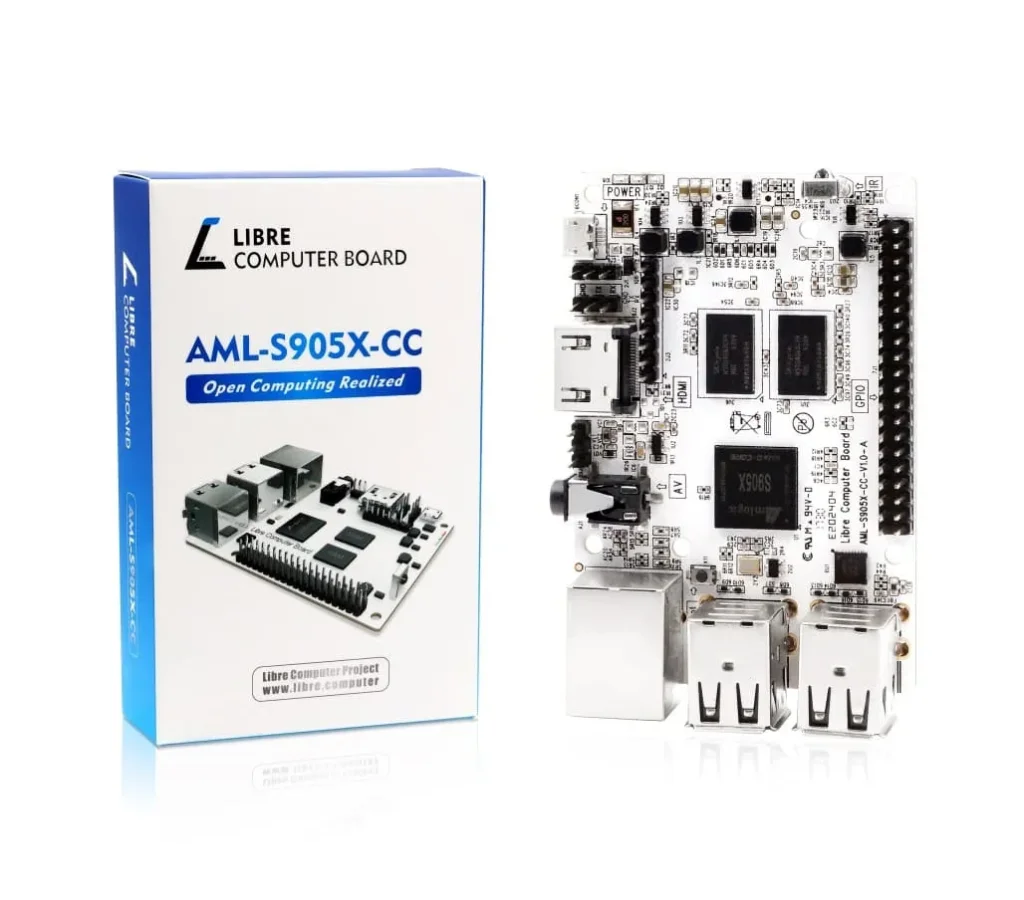
2. NVIDIA Jetson Nano Raspberry Pi alternative
The NVIDIA Jetson Nano is a high-powered Raspberry Pi alternative, specially designed for high-power applications, including AI testing. This developer kit is perfect for running multiple neural networks in parallel for applications like image classification, object detection, segmentation, and speech processing.
Key Features:
- CPU: Quad-core ARM A57 @ 1.43 GHz
- GPU: 128-core Maxwell
- RAM: 4 GB 64-bit LPDDR4 25.6 GB/s
- Display: HDMI 2.0
- USB: 4 x USB 3.0 and eDP 1.4
The Jetson Nano, priced at $99, is a fantastic option for those developing modern AI applications. NVIDIA also offers extensive developer support, making it easy to get started with this SBC.
3. Orange Pi 5 Raspberry Pi alternative
The Orange Pi 5 is a great Raspberry Pi alternative for media purposes. It boasts an octa-core Rockchip RK3588S processor and up to 16GB LPDDR4X, making it suitable for demanding tasks and ambitious projects.
Key Features:
- Processor: Rockchip RK3588S 8-Core 64-Bit (4xCortex-A76 and 4xCortex-A55) up to 2.4GHz
- Graphics: Arm Mali-G610 MP4 “Odin”
- RAM: LPDDR4/4x up to 32GB
- Video: up to 8K @60fps
- Speed: 10/100/1000Mbps Ethernet
The Orange Pi 5 packs a punch with a CPU clocked at 2.4Ghz, an Arm Odin GPU, 8GB RAM (upgradeable to 32GB), DisplayPort compatibility, and a video output HDMI connector at up to 8K.

4. ASUS Tinker Board S R2.0 Raspberry Pi alternative
The ASUS Tinker Board S R2.0 is a viable Raspberry Pi alternative for hobbyists and students. It offers similar performance to the Raspberry Pi but includes more ports, including a full-size HDMI port. Moreover, it has built-in native support for Android, which is not available on the Raspberry Pi.
Key Features:
- Processor: Rockchip Quad-Core RK3288 1.8GHz
- Graphics: Arm Mali-T764 GPU
- RAM: 2GB LPDDR3 dual-channel
- Bandwidth: 802.11 b/g/n
- Bluetooth: V4.0 + EDR
- Speed: 16GB eMMC
The ASUS Tinker Board is perfect for a variety of projects and comes with a color-coded GPIO header and a detailed silk-screen print, making it user-friendly.

5. Banana Pi BPI-M4 and M5 Raspberry Pi alternative
The Banana Pi BPI-M4 and M5 are powerful Raspberry Pi alternatives developed by SinoVoip. The BPI-M4 offers similar performance to the Raspberry Pi but includes more ports, including HDMI, and built-in support for Android and Linux.
Key Features:
- Processor (SoC): Allwinner H618 SoC
- Graphics (GPU): ARM Mali G31 GPU
- Memory: 2GB LPDDR4 RAM
- Connectivity: Gigabit Ethernet, dual-band Wi-Fi (2.4GHz and 5GHz), and Bluetooth 5.0
- Video output: 4K video playback via HDMI 2.0
The Banana Pi M4 and M5 are suitable for a wide range of applications, including multimedia streaming, IoT projects, server applications, and image and video editing tasks.

6. Arduino Mega 2560 Raspberry Pi alternative
The Arduino Mega 2560 is a microcontroller, which is different from a more powerful microprocessor like the Raspberry Pi. However, this board can still be a good alternative to the Raspberry Pi depending on the type of projects you want to work on.
Key Features:
- Microcontroller: ATmega2560
- Clock speed: 16 MHz
- Digital I/O pins: 54
- Analog input pins: 16
- Flash memory: 256 KB
The Arduino Mega 2560 is good for more physical tinkering projects rather than computing projects. It’s also very affordable, often priced around $30 USD, and has a huge online community.
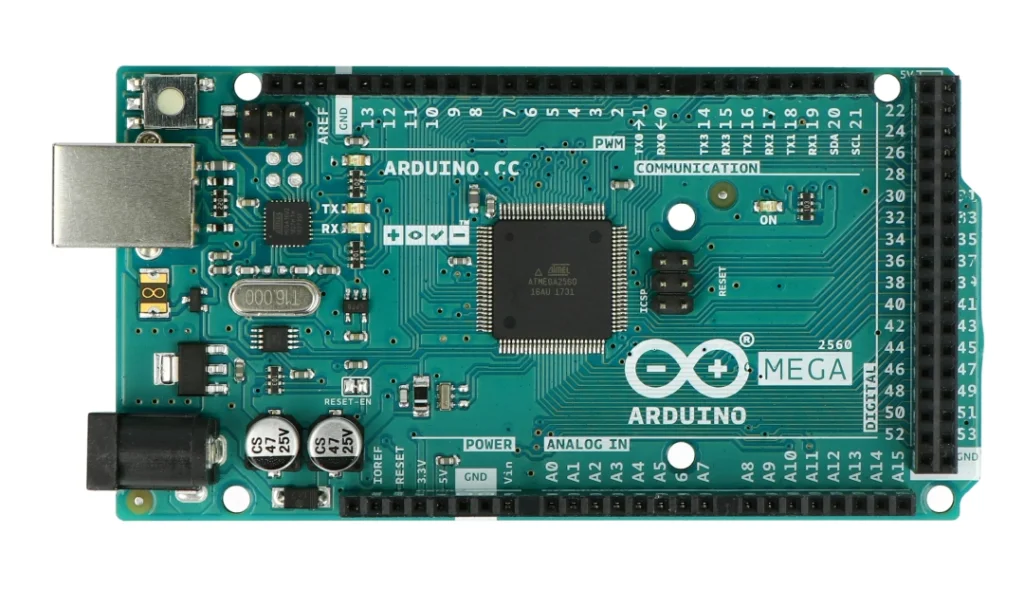
7. Rock64 Media Board Raspberry Pi alternative
The Rock64 Media Board is a powerful Raspberry Pi alternative with a faster processor and double the memory. It features a quad-core 2.1GHz processor and plenty of ports, including HDMI, and built-in support for Android and Linux.
Key Features:
- Rockchip RK3328 Quad-Core ARM Cortex A53 64-bit processor
- Supports up to 4GB 1600MHz LPDDR3 RAM
- eMMC module socket
- MicroSD card slot
- USB 3.0
- HDMI 2.0
The Rock64 Media Board is suitable for a wide range of applications, including multimedia streaming, home automation systems, network storage solutions, retro gaming consoles, and other demanding embedded tasks.
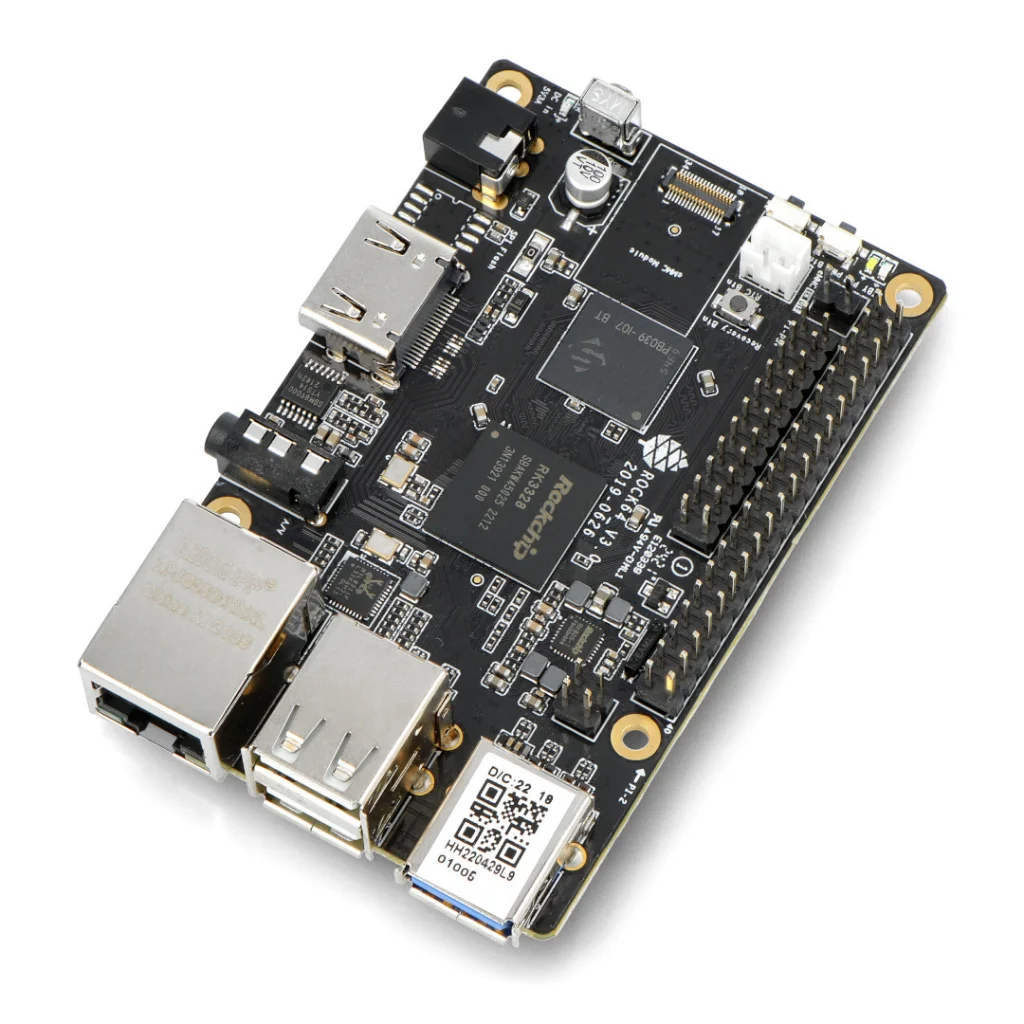
8. Onion Omega2+ Raspberry Pi alternative
The Onion Omega2+ is one of the cheapest IoT single-board computers available. It runs on LEDE (Linux Embedded Development Environment) Linux OS, a distribution based on OpenWRT, making it perfect for almost any type of IoT application.
Key Features:
- MT7688 SoC
- 2.4 GHz IEEE 802.11 b/g/n WiFi
- 128 MB DDR2 RAM
- 32 MB on-board flash storage
- MicroSD slot
- USB 2.0
- 12 GPIO pins
The Omega2+ is a fantastic entry-level option and is currently on sale for $13, making it a great option for beginners exploring the field of SBCs.
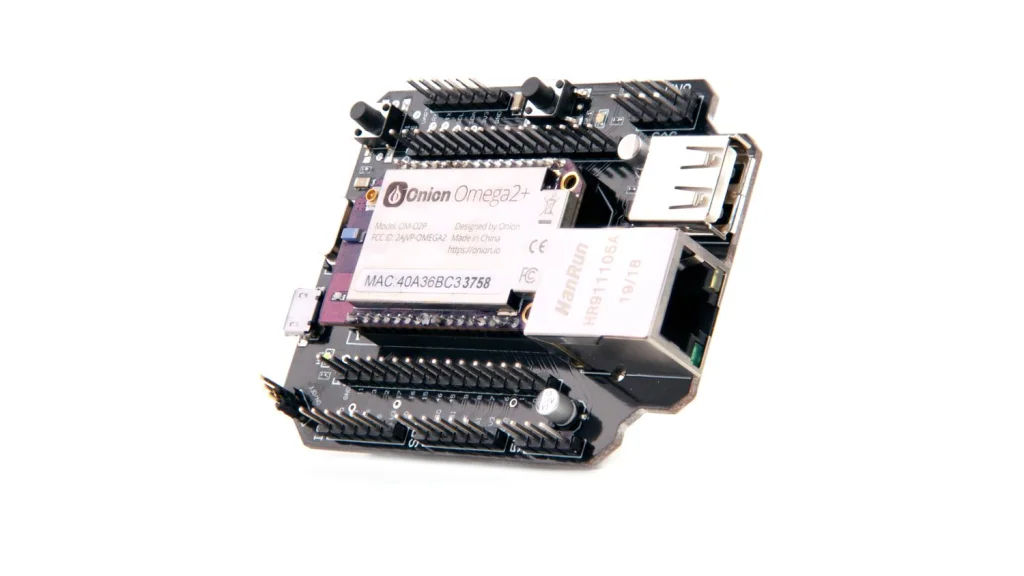
9. ClockworkPi Raspberry Pi alternative
ClockworkPi is a part of the GameShell Kit if you want to assemble a modular retro gaming console. However, you can purchase the board separately for $49.
Key Features:
- Allwinner R16-J Quad-core Cortex-A7 CPU @1.2GHz
- Mali400MP2 GPU
- RAM: 1GB DDR3
- WiFi & Bluetooth v4.0
- Micro HDMI output
- MicroSD card slot
The ClockworkPi’s compact size, WiFi connectivity, and the presence of a micro HDMI port make it an excellent choice for a lot of things.
10. UDOO BOLT v3 Raspberry Pi alternative
UDOO BOLT v3 is a compact board packed with power, with its AMD Ryzen embedded SoC, a mobile GPU, and an integrated Arduino-compatible platform. This board is a compact supercomputer that can handle a wide range of resource-intensive tasks.
Key Features:
- Processor: AMD Ryzen Embedded V1202b dual core/quad thread @ 2.3ghz (3.2ghz Boost)
- Graphics: AMD Radeon Vega 3
- RAM: 2x DDR4 dual-channel 64-bit SO-DIMM Sockets With ECC Support up to 32GB
- Speed: 32GB eMMC 5.0 high-speed drive
The UDOO BOLT v3 is a high-end SBC with the kind of performance you would expect from a desktop computer. It’s expensive, but the speed and support for VR, AR, and AI projects may make it worth it.

11. ODROID N2+ Raspberry Pi alternative
The ODROID N2+ is a powerful yet energy-efficient alternative to Raspberry Pi, offering excellent connectivity and capable of running the Petitboot app. This SBC is great for advanced users.
Key Features:
- Processor: Amlogic S922X — 4x Cortex-A73 @ 2.2GHz, 2x Cortex-A53 @ 1.9GHz
- Graphics: Mali-G52 GPU
- RAM: 2GB or 4GB DDR4
- Interface: eMMC socket with optional 8GB to 128GB
- Features: 8MB SPI flash with boot select switch and Petitboot app
- Ports: Gigabit Ethernet port, HDMI 2.1 port for up to 4K@60Hz
- Connectivity: 4x USB 3.0 ports
- Speed: 2.4Ghz with Gigabit Ethernet Port
The ODROID N2+ is perfect for advanced users who need more power than a regular SBC. It can run various versions of Linux, including the latest Ubuntu, and it’s also compatible with AndroidOS.
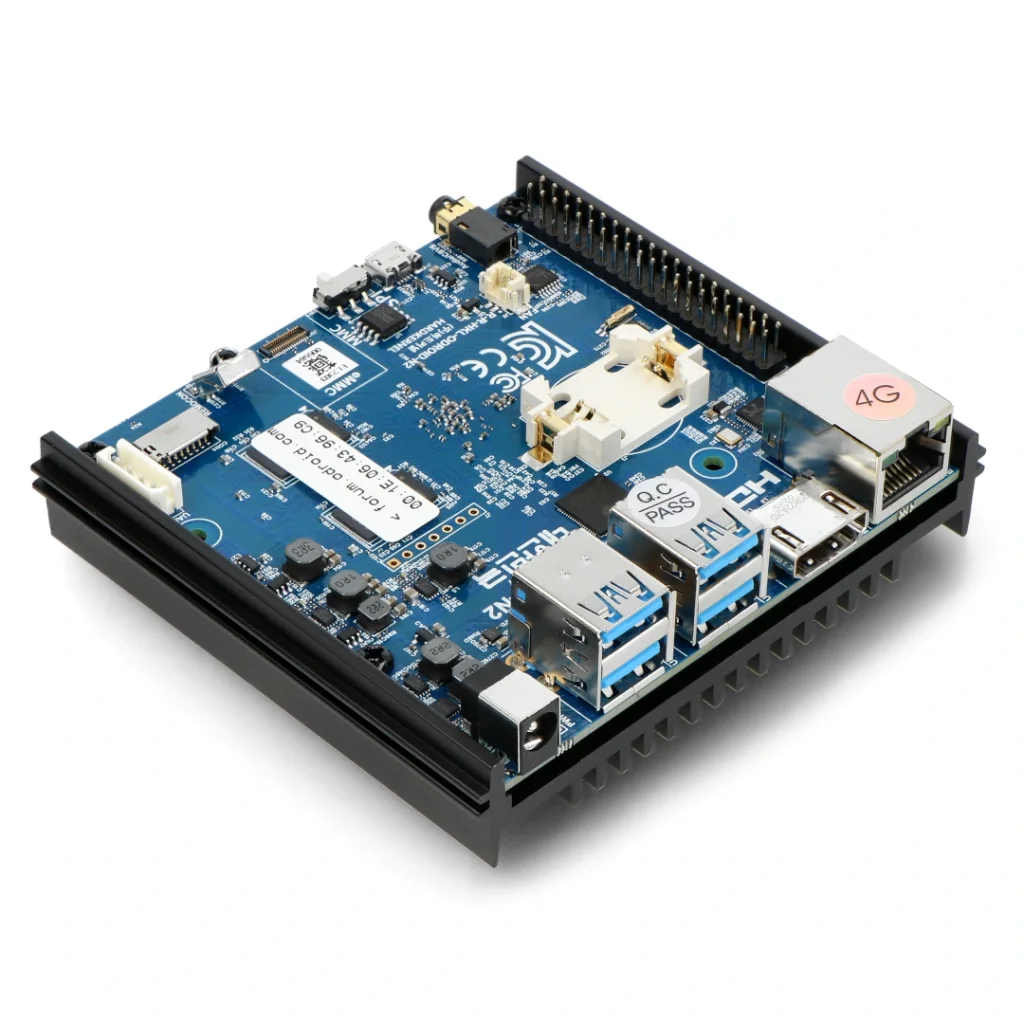
12. NanoPi NEO2 Raspberry Pi alternative
The NanoPi NEO2 is a cheap and customizable Raspberry Pi alternative. It may not be the most powerful in the range, but it offers a good set of features for its price.
Key Features:
- Allwinner H5, Quad-core 64-bit high-performance Cortex A53
- 32.54mm pitch 10 pin-header, includes UART, I2C, IO, 5V IN/OUT, etc.
- 32-bit 1GB DDR3
- One eMMC flash module socket
- 10/100/1000M Ethernet, RTL8211E-VB-CG chip
- MicroSD x 1
- Armbian OS support
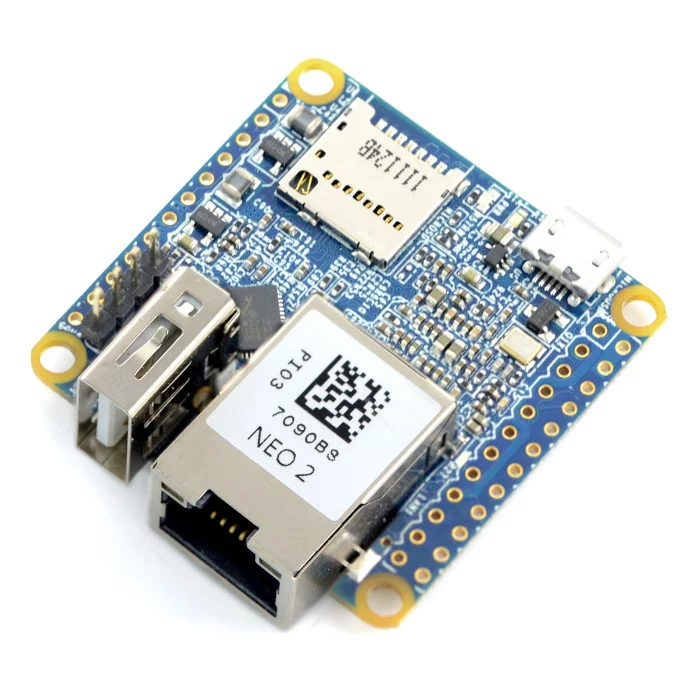
Despite the diverse range of Raspberry Pi alternatives available, the Raspberry Pi remains an excellent starting point for anyone interested in single-board computers. Its popularity and extensive support community make it an ideal choice for beginners. However, as you gain more experience and start working on more complex projects, the alternatives listed above can provide the additional power, flexibility, and features you might need.


